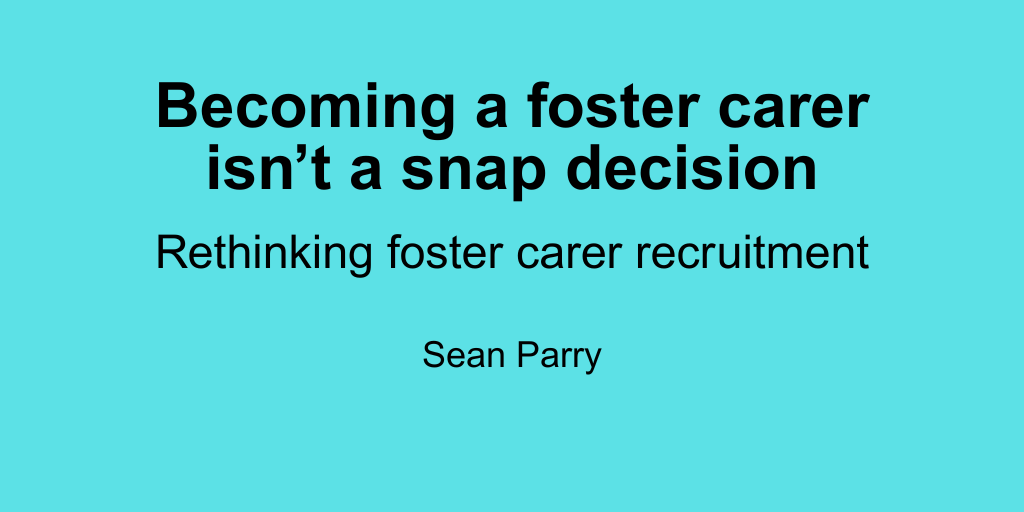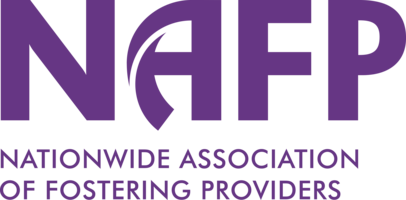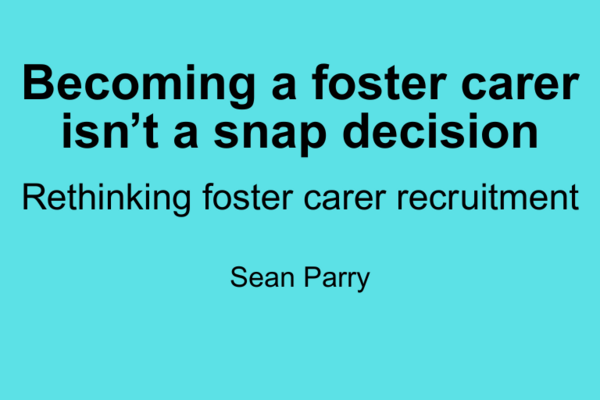
Becoming a foster carer isn’t a snap decision. It’s often a lengthy, sometimes several-year journey shaped by conversations with friends, family, and colleagues, and influenced by moments in everyday life. The decision is rarely made after seeing one advert – instead, it’s a process of awareness, reflection, and gradual commitment.
The challenge for fostering agencies is that much of this journey happens quietly and out of sight. A prospective carer might first think about fostering after meeting someone who does it, then research online, then put the idea aside when life gets busy. Months later, a conversation or a news story might bring it back to the surface. By the time they apply, they may have been thinking about it for years.
Yet many recruitment campaigns focus only on the final step, the moment someone is ready to apply. Those adverts might bring in enquiries, but in reality they often tip over people who have been on the path for a long time. It’s much more luck than strategy.
To improve results, fostering agencies need to tailor their messaging to each stage of the decision-making process.
In the early stage, someone might just need to be inspired, to see a story that makes them think, “I could do that.” At this point, the goal isn’t to push them into applying but to plant a seed and build positive associations with your agency.
In the middle stage, potential carers are actively considering it. They’re looking for answers to practical questions: what support they will get, what training is offered, what the day-to-day reality looks like. This is where detailed, honest information builds trust.
The late stage is when they’re ready to make a move. Here is when clarity and ease matter most. Make the route to apply simple and remove barriers. Strong calls to action, quick responses, and personal contact can make the difference.
Another really important factor in recruitment is retention. Happy, supported carers are your best advocates. Most new carers come through word-of-mouth, and every positive interaction your existing carers have in the community is a piece of recruitment marketing you can’t buy. Retention isn’t just about keeping placements stable; it’s about creating a culture and environment that’s going to motivate your carers to get out there telling people, unprompted, “They’re a great agency to work with.”
So what can agencies do differently? Start by mapping content and campaigns to the different stages of the journey. Pay attention to patterns. When enquiries tend to spike, how competitors are advertising, and where the gaps are. Be ready to step into those quiet spaces with well-timed, relevant messages.
Foster carer recruitment is a long game. The agencies that understand and work with that reality will build stronger pipelines of carers and a more resilient reputation. The question is, are you speaking to potential carers at every stage, or only those standing right at the finish line?
Sean Parry is a specialist foster carer marketing and recruitment consultant





